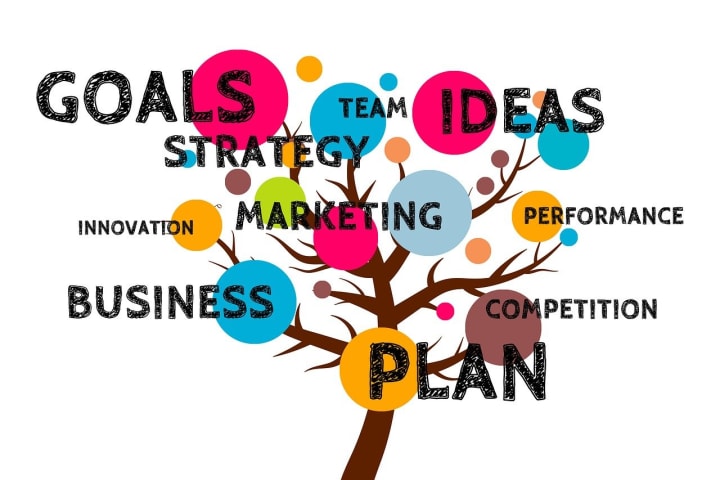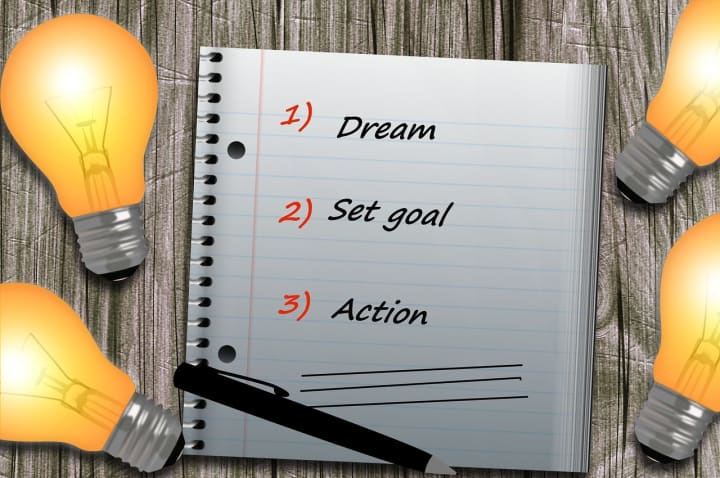Unlocking Your Inner Drive
The Psychology of Motivation

Table of contents
- Introduction
- Intrinsic vs. Extrinsic Motivation
- The Psychology of Motivation
- How to Boost Your Motivation
- The Dark Side of Motivation
- Conclusion
1. Introduction
Motivation- a buzzword that drives individuals towards their goals. It's an internal driving force that propels one to achieve their targets.
Motivation can be classified into intrinsic and extrinsic types. The former originates from within, while the latter is driven by external factors, such as rewards or recognition.
It's important to note that motivation not only brings a sense of purpose but also improves psychological well-being. Hence, developing and sustaining motivation is crucial.

2. Intrinsic vs. Extrinsic Motivation
Motivation is the drive to achieve our goals and fulfill our desires.
There are two types of motivation: intrinsic and extrinsic.
Intrinsic motivation comes from within, when you do something because it's satisfying or enjoyable, without expecting any external rewards. For example, playing an instrument simply because you love the sound and the act of creating music.
Extrinsic motivation, on the other hand, comes from outside, in the form of rewards or punishments. For example, playing an instrument to win a competition or to please someone else.
While intrinsic motivation is considered healthier, this does not mean that extrinsic motivation should be avoided entirely. Instead, it’s essential to understand the role of both types of motivation and use them appropriately.
Intrinsic motivation can help us find our passion and improve our well-being, while extrinsic motivation can be a useful tool to achieve certain goals and milestones.
It’s important to find a balance, combining our internal drive with the external incentives that help us stay on track. Bottom line?
Motivation is complex, and while intrinsic motivation may be the "holy grail" of motivation, it’s okay to use extrinsic motivation to help us achieve goals.
3. The Psychology of Motivation
Motivation is a complex concept that has baffled philosophers and psychologists for ages. Self-efficacy - the belief in one's ability to accomplish tasks - is a cornerstone of motivation.
Emotions also play a crucial role in motivation; negative emotions like fear can hinder motivation, while positive emotions like excitement can fuel it.
Social cognitive theory explains how motivation can be influenced by social situations and our own perceptions of our abilities. While the exact mechanisms behind motivation are still being studied, it is clear that it is a fundamental aspect of achieving success in any area of life.
Developing self-efficacy, regulating emotions, and surrounding yourself with supportive individuals are all ways to boost motivation.
It's important to recognize the potential pitfalls of motivation, such as perfectionism and burnout, and take steps to overcome them. By understanding the psychology of motivation, we can unlock our inner drive and achieve our goals.
4. How to Boost Your Motivation
We all have moments where we lack motivation. But don't worry, there are ways to boost it!
Start by setting achievable goals, and break them down into smaller tasks. Reward yourself each time you complete a task, and make sure to find a purpose behind what you're doing.
Surround yourself with motivation by seeking out support from those around you.
Remember, motivation comes from within and with a little effort can lead to great achievements.

5. The Dark Side of Motivation
Whoever said too much of a good thing is bad was definitely talking about motivation.
Perfectionism, the desire to achieve flawlessness and highly impossible standards is a double-edged sword that more often than not results in us feeling inadequate.
This constant push for more, better, faster comes at a high price, burnout. Pushing and pushing past our limits is never a good idea.
Recognizing when we're burnt out and taking the time to recuperate is vital for our mental and physical well-being. Sometimes all we need is a break and some self-care to get back in the game.
6. Conclusion
Motivation is a complex concept that can be driven by intrinsic or extrinsic factors. Self-efficacy, emotions, and social cognitive theory play a role in motivating individuals.
To boost motivation, set achievable goals, reward yourself, find your purpose, and surround yourself with motivation.
However, be aware of the dangers of perfectionism and burnout. Take care of yourself and maintain a healthy balance.

About the Creator
Enjoyed the story? Support the Creator.
Subscribe for free to receive all their stories in your feed. You could also pledge your support or give them a one-off tip, letting them know you appreciate their work.





Comments
There are no comments for this story
Be the first to respond and start the conversation.